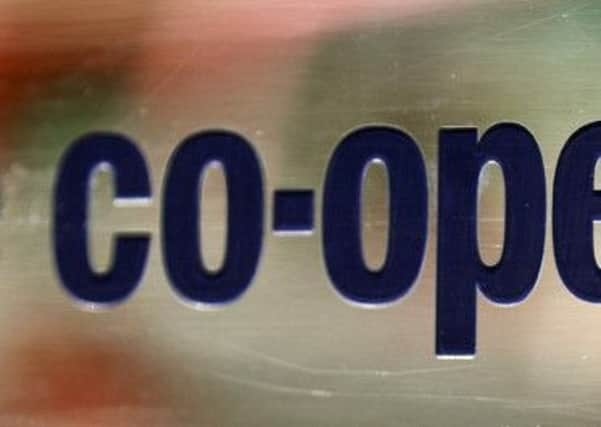Co-op Group bosses to reveal scale of challenge facing mutual


The Co-op, which employs about 7,600 people in Yorkshire, is due to deliver its half year results on Thursday, and members will be looking for signs that management has finally got a grip on problems which brought it to its knees.
It slumped to a £2.5bn loss for 2013 after being dragged down by the near-collapse of its banking arm, when a £1.5bn hole was discovered in its balance sheet.
Advertisement
Hide AdAdvertisement
Hide AdOn Saturday, Co-operative Group members overwhelmingly endorsed a radical shake-up of its board structure, which followed a string of mistakes that brought Britain’s biggest mutual to its knees.
The Co-op chairwoman Ursula Lidbetter said: “These reforms represent the final crucial step in delivering the change necessary to return the group to health.”
The group said at the time of the 2013 results that its supermarket operation was showing signs of improvement, and there was a better performance from its expanding convenience store network.
But latest industry data from Kantar Worldpanel showed its market share slipping to 6.4 per cent for the 12 weeks to August 17 from 6.6 per cent while sales fell by 1.2 per cent.
Advertisement
Hide AdAdvertisement
Hide AdThe group has been labouring under a £1bn-plus debt mountain, but moved to ease some of the burden in July when it announced it had sold its pharmacy stores for £620m in a deal with the company behind convenience shop brand Best-one.
Last month, it said it was ending 118 years of crop-growing as it sold its farming business to the Wellcome Trust for £249m.
The Co-op Bank had to be rescued last year in a deal which saw bondholders, including US hedge funds, take majority control. A report by former City minister Lord Myners urged the Co-op group to embark on a series of radical changes.
A separate report by Sir Christopher Kelly into the downfall of the Co-operative Bank found that the Co-op group had badly let down its millions of members by failing to provide “proper stewardship” of the lender.
Advertisement
Hide AdAdvertisement
Hide AdLast week, the lender reported first-half losses had narrowed from £845m to £76m but said it had lost 38,000 current account holders amid a “hurricane of negative publicity”.
Chief executive Euan Sutherland walked out earlier this year, claiming the mutual was ungovernable.
Richard Pennycook, who has been standing in at the helm of the group following Mr Sutherland’s departure, warned that its disastrous annual results for last year were a “wake up call” to the challenges faced by the group.
He said it needed to change course after it had tried too hard to be “all things to all men” and painted a picture of staggering mismanagement and chaotic governance at the group.
Advertisement
Hide AdAdvertisement
Hide AdMr Pennycook also announced a £100m cost-cutting drive and the disposal of the majority of the sites it picked up in the ill-fated takeover of Somerfield.
At a special general meeting, which was held in Manchester on Saturday, 83 per cent of votes were cast in favour of proposals that aim to place the Co-op on a firmer financial footing.
The plans include reform of the board structure, with elected directors largely replaced by professional business people. The new governance structure includes the creation of a smaller board of directors and a move to a one-member one-vote system.